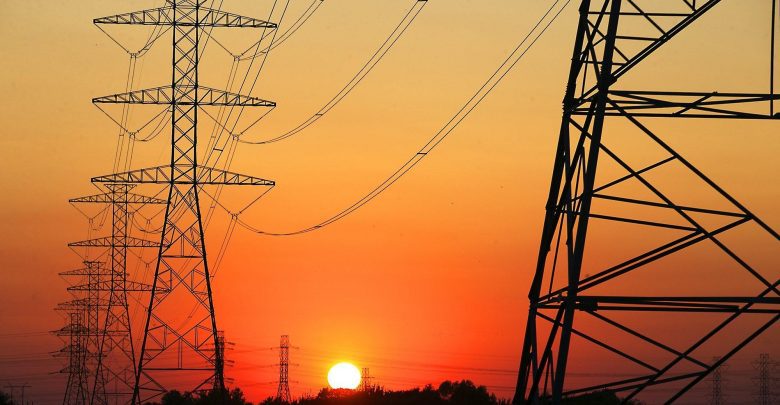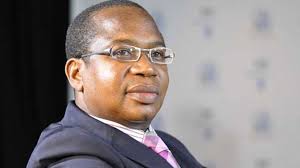ZAPU calls on multi-stakeholder approach to solve energy crisis

ZAPU has urged stakeholders, including political parties, the business community, and civil society, to collaborate in order to find solutions to the ongoing energy crisis, which threatens to bring Zimbabwe’s already fragile economy to a halt.
Zimbabwe is currently suffering from severe electricity shortages, as evidenced by blackouts and ‘relentless’ load shedding ranging from 18 to 20 hours nearly every day across the country.
According to ZAPU National Secretary for Economic Development, Stenny Winfred Mathe, the crisis was caused by the government’s failure to implement a forward-thinking policy for electrical generation after independence.
He cited several Zanu PF government failures that contributed to the energy crisis, including “inconsistent monetary policies, industry incapacity, a chaotic land reform programme in which some new land occupants stripped farm implements, killing the sector as a viable consumer of electricity.”
Mathe added how the government had failed to exploit alternative sources of energy such as the abundant gas in parts of Matabeleland and solar energy in areas like Beitbridge, Malipati and Chikombedzi.
Freebies have also affected the energy sector, said Mathe, noting that Zanu PF officials’ properties owe the power utility millions in unpaid electricity spanning decades.
“Instead of seeking payment for these outstanding debts, the government is rewarding government ministers and senior civil servants with solar systems instead. As if that is not enough, the solar systems are acquired at ridiculously inflated prices in yet another corrupt deal to enrich the same people who caused this crisis,” Mathe claimed.
He stated that after approving the establishment of Independent Power Players (IPPs) and establishing the Zimbabwe Energy Regulatory Authority (ZERA) to oversee such ventures, the government had failed to assure the private sector and investors of a proper return on their investment.
“ZESA, as grid owner, is not prepared to pay market related prices for the power prices for the electricity produced by Solar IPP’s rendering the process null and void. ZESA is also incapacitated by government through ZERA by regulating the price of electricity below market-related prices as viewed through Southern Africa Power Pool, while government implements that price control it fails to supplement the power authority the financial loss by providing subsidies for the power utility,” he said.
Interference of the ruling party and government ministries in the proper management of parastatals like ZESA and appointing less qualified individuals to run such organisations is also to blame, Mathe added.
“It is envisaged that if the current solar power price is equated to market related rates and government can guarantee the repatriation of investment and returns; the current power shortage will be eliminated within 15 months of implementing the IPPs,” said the ZAPU official.
“ZAPU calls on all stakeholders including political parties, business sector, civil society to converge in dealing with this crisis which is threatening to destroy the already faltering economy,” Mathe said.
“This task cannot be left in the hands of an incompetent, corrupt and unimaginative government whose only preoccupation is looting national resources for personal gain.”
On its behalf, Mathe stated ZAPU proposes to implement a new energy policy mix based on full utilisation of all natural resources to benefit all provinces in the implementation of the devolution policy.
“Our view is the current 2 200 MW maximum demand figure is not correct because this figure has been touted since 1984. While the national economy has been depressed since 1999, there has been an upsurge in electricity demand for domestic usage through rural electrification,” he said.
“ZAPU believes that for proper economic growth the country should set its energy policy in a progressive manner over a 10-to-20-year period. The country must have enough capacity at all times of one and half times the actual maximum demand (for instance, if we say our maximum demand is 2 200MW our installed Generation Capacity should be 3 000MW). This will allow for proper plant maintenance and statutory unit outages which can run for months before units can be brought back to the grid.”
Mathe said ZAPU also proposes a complete overhaul of the energy mix by introducing solar farms in areas like Beitbridge, Malipati and Chikombedzi as a pilot project while making use of gas as well.
“Zimbabwe is one of three or four countries with the largest gas resources in the world but little or no effort has been to use it productively for our people. ZAPU will seek to exploit this resource and use it to benefit local consumption. ZAPU will review all gas concessions allocated in a partisan manner and all those allocated will be required to start production within three years or lose the concessions,” he listed.






